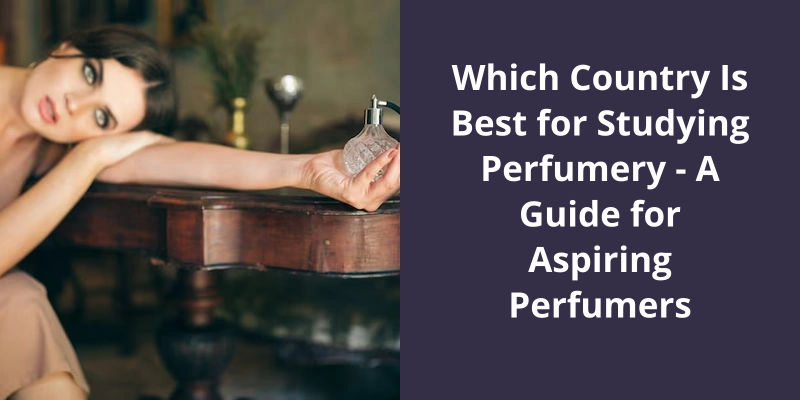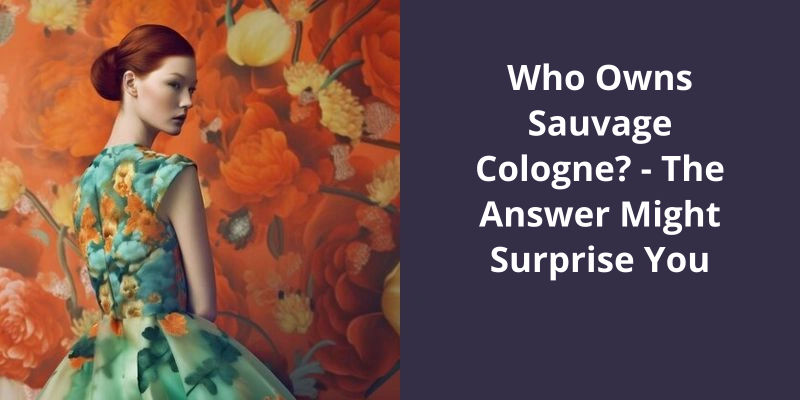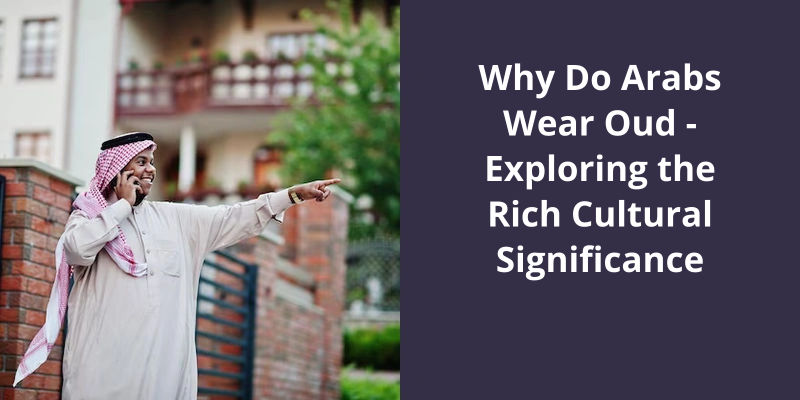The best country for studying perfumery is France. Specifically, the city of Grasse in the French Riviera, which is known as the perfume capital of the world. It is here where internationally recognized perfumery schools like the Grasse Institute of Perfumery exist, which offer high caliber education in the art and science of fragrance creation. As well, France’s rich history, cultural influence, and its global significance in the perfume industry make it a prime location for aspiring perfumers. Hence, studying in France can provide a comprehensive and immersive learning experience in the field of perfumery.

Who Is the Largest Importer of Perfume?
Perfume industry is one of the most lucrative in the world, catering to the popularity of fragrances and perfumes among people of all ages. The global perfume market is anticipated to witness significant growth in the coming years, due to rising disposable incomes and more people adopting luxurious lifestyles. The top five countries that export perfume are France, Spain, Germany, Italy, and the United States, with France being the largest exporter, accounting for over $6 billion in exports in 2021.
France is renowned for it’s high-quality perfumes, with many of the worlds most popular perfumes originating from the country. The countrys reputation for quality perfumes is a result of their long history in making fragrances, and they’ve perfected the art with years of experience and expertise.
Spain has seen a steady rise in the demand for it’s perfumes over the years, with a notable increase in export value, reaching over $2 billion in 202On the other hand, Germanys high-quality fragrances have helped it become a mainstay in the global perfume market.
The United States, in particular, is known for creating mass-market fragrances that have a broad appeal, making them a favorite among consumers looking for affordable yet quality fragrances.
The United States stands as the largest importer of perfume, accounting for over $2 billion in imports in 202Germany and the United Kingdom aren’t far behind, with significant imports of over $1 billion each.
With the industry experiencing continued growth, it’s likely that well see more countries emerging as major players in the perfume industry.
What Are the Most Popular Types of Perfumes Around the World?
Perfumes are scents that people use to enhance their personal charm and appeal. They come in various types and brands, but the most popular ones around the world are often floral, fruity, and musky scents. The popularity of perfumes varies depending on the culture and climate of a region, but some of the most well-known fragrances include Chanel No. 5, Dior J’adore, Versace Bright Crystal, and Calvin Klein Euphoria.
The history of fragrances dates back to antiquity, and throughout the years, different regions have emerged as prominent hubs for the creation of exquisite perfumes. Paris and Grasse, the world’s perfume capital, are two of the most renowned centers of the French perfume industry, with their creators being responsible for some of the most prestigious and iconic fragrances. However, fragrances have been used all around the Mediterranean, and each culture has it’s unique way of crafting these delicate scents.
Where Are the Best Fragrances Made?
The art of perfume-making has been a part of human history for over a thousand years. The ancient Egyptians are famed for their use of fragrances in religious ceremonies and for the preservation of the dead. The Greeks and Romans also appreciated sweet-smelling essences, using them both for medicinal purposes and to perfume their bodies.
Today, the perfume industry is centered in Paris, where the worlds most prestigious perfumes are created. Perfume houses such as Chanel, Dior, and Guerlain have become synonymous with luxury and elegance, their fragrances crafted by highly skilled perfumers. These perfumers are known as “noses” and are trained to recognize even the subtlest of scents.
But while Paris is the heart of the perfume industry, it’s the town of Grasse in the south of France that’s often referred to as the worlds perfume capital. Grasse has long been associated with the production of flowers, and it’s abundance of jasmine, rose, and lavender fields have made it a hub for the fragrance industry. Many of the worlds leading perfume houses have offices or laboratories in Grasse, and the towns perfumeries attract visitors from around the world.
The process of creating a perfume is a complex and highly artistic endeavor. The perfumer must choose the right combination of scents, blending together natural and synthetic oils to create a unique fragrance. They must also account for the way in which the fragrance will develop over time, as it interacts with the wearers skin. This is why the creation of a fragrance can take months or even years to perfect.
In addition to Grasse and Paris, Italy is also known for it’s rich history in the perfume industry, with the city of Florence considered to be a hub of perfume-making in the country. The Italian perfumeries are known for their use of high-quality natural ingredients, such as bergamot, rose, and iris.
Overall, the best fragrances are made by expert craftsmen and women, who’ve a deep understanding and appreciation for the art of perfume-making. Whether created in Paris, Grasse, or Florence, these fragrances are designed to evoke emotion and transport the wearer to another world. The next time you spritz on your favorite scent, take a moment to appreciate the craftsmanship and artistry that went into it’s creation.
The History of Perfume-Making in Different Regions/Countries
- The Egyptians were one of the first to discover the art of perfume-making, and they used aromatic herbs and spices in religious ceremonies.
- The Persians developed the process of distillation, which allowed for the extraction of oils from plants, and they created some of the earliest fragrances.
- The Greeks and Romans were known for their use of floral scents and the creation of scent formulas for medicinal purposes.
- The Arabs made significant contributions to perfume-making by introducing new techniques, such as the use of alcohol as a solvent, and they exported their fragrances across Europe and Asia.
- During the Renaissance, perfume-making became an important industry in France, and Grasse became known as the center of the perfume industry.
- Today, perfume-making is a global industry, with different countries and regions contributing their own unique scents and techniques.
As one of the many products that fall under the umbrella of the beauty industry, perfume holds a unique place in the market. With it’s ability to evoke memories and emotions, perfume remains a popular product despite the rise of more practical and functional products. In this article, we will explore the fascinating world of perfume, from it’s history to it’s current trends and everything in between.
What Type of Industry Is Perfume?
Perfume industry is an integral part of the beauty industry as it deals with the manufacturing and distribution of fragrances used in various cosmetics and personal care products. The industry offers a diverse range of products that cater to individual preferences, and the perfume sector contributes significantly to the economy. The fragrance market is growing at a tremendous pace worldwide, with a compound annual growth rate of 5.35% estimated during 2020-2025.
Perfumes are usually categorized based on their concentration and composition. They can be classified into four main types, including Eau de Parfum, Eau de Toilette, Eau de Cologne, and Perfume. The demand for these fragrances depends on individual tastes and preferences, and perfume companies are continually experimenting to introduce new scents and blends that appeal to a broader audience.
The perfume industry has significant implications for the environment, with fragrance manufacturing plants consuming massive amounts of water and energy. Perfumes also contain certain chemicals that can be harmful to the environment and human health. Many companies are now adopting sustainable practices to reduce their carbon footprint and contribute to preserving the planet.
As companies adapt to sustainable manufacturing practices, the industrys impact on the environment is likely to become more positive in the years to come.
Furthermore, perfumers are experts in the art of creating and blending scents that are pleasing and harmonious to the human senses. They must also keep up with the latest trends and consumer preferences in order to develop fragrances that are marketable and attractive to customers. But what exactly is a fragrance chemist called? Let’s delve into the world of perfumery.
What Is a Fragrance Chemist Called?
These chemists work on developing new fragrances, perfumes, and scents that are used in a variety of products, from personal care items to home cleaning supplies. They use their knowledge of chemistry and fragrance ingredients to create perfumes that smell appealing to the human nose, being able to distinguish the different scents that make up a fragrance is crucial to their job.
The process of developing a fragrance is complex and involves not only creating a scent that smells good, but also ensuring that the fragrance can be effectively produced and remains stable over time. Perfumers must take into account the nuances of each ingredient and how it will interact with other ingredients, as well as consider the different notes, such as top, middle, and base notes, that make up a fragrance.
Some might work in labs and research centers, while others work in a more hands-on role, testing and evaluating fragrances. They may also work with marketing teams to develop marketing strategies or provide input on product packaging designs.
To become a fragrance chemist requires a strong background in chemistry and a deep understanding of fragrance ingredients and their properties. Perfumers may hold degrees in traditional chemistry or may have studied fragrance chemistry specifically. They may also gain experience through internships or apprenticeships with established fragrance labs or perfumeries.
Types of Fragrances and Their Applications (e.g. Personal Care Products, Household Cleaning Supplies, Aromatherapy, Etc.)
- Citrus – used in personal care products, household cleaning supplies, and aromatherapy for it’s refreshing and invigorating scent
- Floral – commonly used in perfumes and personal care products for it’s romantic and feminine scent
- Oriental – used in perfumes and home fragrances for it’s warm and spicy scent
- Fruity – used in perfumes and personal care products for it’s sweet and juicy scent
- Woody – used in perfumes and home fragrances for it’s earthy and musky scent
- Herbal – used in aromatherapy and household cleaning supplies for it’s fresh and clean scent
However, other countries have been making significant strides in the perfume industry, thanks to their unique ingredients and techniques. From Italy to India, perfume-making has become a global endeavor. In this article, we’ll explore some of the best countries for making perfumes and their contributions to the industry.
Which Country Is Best for Making Perfumes?
The countrys reputation in the field of perfumery stems from it’s long history of producing premium fragrances that are unmatched in quality. With over 300 years of experience in the perfume industry, France has earned it’s place as a leader in the production of luxury fragrances.
The countrys favorable climate, specifically in the southern regions, is another key factor that’s contributed to the success of the French perfume industry. The warm and sunny conditions create an ideal environment for growing fragrant flowers such as lavender, jasmine, and rose – all essential ingredients in the production of perfume.
The art of perfumery has been ingrained in French culture for centuries, with famous French perfumers like François Coty and Jacques Guerlain paving the way for modern-day perfumery.
The French government has also played a significant role in supporting the perfume industry, dating back to the reign of King Louis XV. The kings decree allowed French perfumers to use only locally sourced, natural ingredients, which ensured the quality of French perfumes and cemented the countrys reputation as a producer of premium fragrances.
It’s reputation in the perfume industry is well-deserved, and when it comes to producing premium fragrances, theres simply no competition.
Conclusion
When it comes to choosing the best country for studying this craft, France definitely stands out as a top contender. Ultimately, the decision on where to study perfumery may vary based on personal goals, preferences, and circumstances. Regardless of the chosen country, however, the passion and dedication to perfecting the art of fragrance-making is what’ll truly make one stand out in this competitive and dynamic field.





